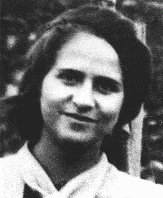You searched for: FACEBOOK代全世界推广开户【TG飞机:@bapingseo】谷歌seo网站推荐【TG电报:@bapingseo】尼日利亚做广告【Telegram:@bapingseo】128棋牌下载hi合乐888手机?3wBIVN/I2czUS.html
<< Previous | Displaying results 1551-1575 of 1755 for "FACEBOOK代全世界推广开户【TG飞机:@bapingseo】谷歌seo网站推荐【TG电报:@bapingseo】尼日利亚做广告【Telegram:@bapingseo】128棋牌下载hi合乐888手机?3wBIVN/I2czUS.html" | Next >>
-
Chaja Kozlowski
ID CardChaja was the eldest of four children born to a middle-class Jewish family in the northeastern Polish town of Iwie. Her father earned his living as a blacksmith. Chaja first went to a private Jewish school that taught both religious and secular subjects; in the fourth grade she transferred to a public school, and also attended Hebrew school in the afternoon. 1933-39: Chaja belonged to one of the Zionist youth organizations in Iwie. They heard lectures, often on Palestine [Yishuv], and had many sporting…
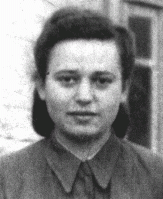
-
Pola Nussbaum
ID CardPola was born to a Jewish family in a small town [in Poland] about three miles from the German border. Her family had lived there for generations. Pola's father exported geese and other goods to Germany; her mother owned a fabric store. They lived with Pola's grandmother in a large, single-level, gray stucco house. Raczki had a small Jewish community with a Hebrew school that Pola attended. 1933-39: In 1937 Pola began secondary school in the town of Suwalki. She excelled in math, and hoped to study…
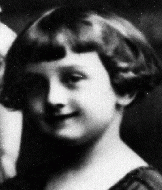
-
Freya Karoline Lang
ID CardAn only child, Freya was born to Jewish parents who lived in a small German town in the Rhine River valley. The Langs owned a successful dry goods business. At this time ready-made clothes were still rare in the countryside. Townspeople and local farmers would purchase fabric at the Lang's store and then take it to their tailor or seamstress to be sewn into a garment. 1933-39: When Freya was growing up, the Nazi party was in power. Many Jews left Germany--Grandmother Lang and one of Freya's uncles sailed…
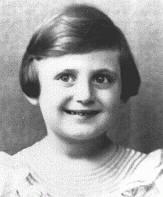
-
Chava Cherniak Biber
ID CardChava's mother died when she was 2, and Chava went to live with her grandfather, who was a rabbi in the village of Matsiov. Her grandfather's second wife welcomed Chava. After first studying at a Polish public school, Chava attended a Jewish day school. When Chava was a teenager her adopted grandmother died, and Chava took over managing her grandfather's household until he remarried. 1933-39: Chava's grandfather's third wife was an unsympathetic woman. After she came to their home, Chava wanted to be…
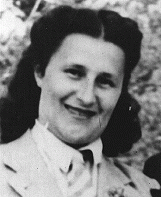
-
Fruma Lieberman Perlmutter
ID CardFruma was one of four children born to a Jewish family in the Polish village of Luczyce. Her parents owned a large farm near the village. In the early 1920s, Fruma married Simcha Perlmutter, a philosophy professor at the university in Lvov, and the couple settled in Horochow. By 1929 the couple had two daughters, Tchiya and Shulamit. 1933-39: In September 1939, as Simcha was arranging for his family to immigrate, Germany invaded Poland. Three weeks later the Soviet Union occupied eastern Poland where…
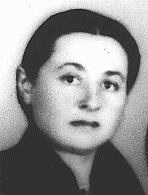
-
Dora Eiger
ID CardDora grew up in the industrial city of Radom, known for its armaments industry. Though fervently Jewish, her Yiddish-speaking parents differed from each other in that her mother was deeply religious while her father was not religious and was an ardent member of the Zionist Labor Party. Also known by her Jewish name D'vora, Dora attended Jewish schools and joined a Zionist youth organization. 1933-39: When Dora visited her uncle near the German border in 1936, she first noticed anti-Jewish placards and…
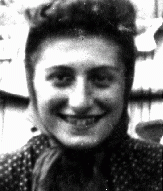
-
Eva Brigitte Marum
ID CardEva Brigitte was the youngest of three children born to German-Jewish parents in the capital of Baden, a state along the Rhine River in southwestern Germany. Known as Brigitte by her friends and classmates, and as "Brix" by her family, she grew up in a secular household and attended public schools. Her father was a local Social Democratic party leader. 1933-39: In 1933 the Nazis came to the Marum's house and arrested Eva's father because he was an active anti-Nazi. Two months later she suddenly saw him…
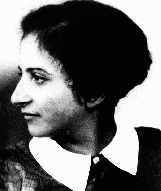
-
Machla Spicehandler Braun
ID CardRaised in Lowicz, Poland, in a religious Jewish family, Machla moved to Lodz when she married Jacob Braun. Her husband worked as a businessman and real estate investor. He became the landlord for an apartment building where he and his family also lived. Machla, a housewife, cared for their five children, who ranged in age from 5 to 15. 1933-39: Machla worked as a volunteer for the Zionist cause. The Brauns were a close family, and Machla's daughters Lena and Eva held their weddings in the Braun's large…
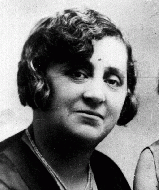
-
Feiga Malnik
ID CardRaised in a Jewish family, Feiga lived with her husband, Josef, in Kovno, a city with a large Jewish community of 38,000. Kovno was situated at the confluence of two rivers, and with its opera company, chic stores and lively nightclubs, it was often called "Little Paris." Feiga was a beautician and Josef was a barber, and together they ran a shop in downtown Kovno. 1933-39: Every day Josef and Feiga walk to their shop, which is near their house. It's hard work, being a beautician--Feiga is on her feet…
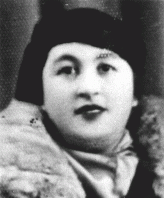
-
Johanna (Hanne) Hirsch
ID CardHanne was born to a Jewish family in the German city of Karlsruhe. Her father, Max, was a photographer. When he died in 1925, Hanne's mother, Ella, continued to maintain his studio. In 1930 Hanne began public school. 1933-39: In April 1933 Hanne's family's studio, like the other Jewish businesses in Karlsruhe, was plastered with signs during the anti-Jewish boycott: "Don't buy from Jews." At school, a classmate made Hanne so furious with her taunts that she ripped her sweater. After the November 1938…
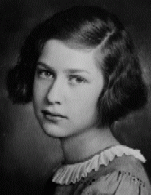
-
Liliana Guzenfiter
ID CardAn only child of middle-class Jewish parents, Liliana was raised in a mixed neighborhood of Christians and Jews in Poland's capital. Her father ran a jewelry business and was a reserve officer in the Polish army; her mother was a housewife. Liliana dreamed of going to the Sorbonne and becoming Poland's second female district attorney. 1933-39: The worst part of going to school was being harassed and called a "filthy Jew." Liliana petitioned to enter a prestigious Catholic high school where she was…
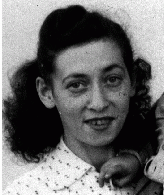
-
Hela Los
ID CardOne of nine children, Hela grew up in the Polish capital of Warsaw. Her father was an art and antique furniture dealer and had a store on Marszalkowska Street. Every year, from the beginning of the summer break until the Jewish High Holidays in the fall, the Los family vacationed in the town of Miedzeszyn, located a short train ride's distance from Warsaw. 1933-39: Hela and her family were still at their vacation home when the Germans entered Warsaw on September 28, 1939. As soon as it became possible,…
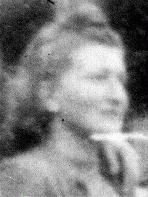
-
Frimit Bursztyn
ID CardFrimit was one of eight children born to Yiddish-speaking, religious Jewish parents. The Bursztyns lived in the heart of the same Jewish neighborhood in Warsaw where Frimit's father owned and operated a bakery located on Zamenhofa Street. In 1920 the Bursztyns moved to a comfortable, two-bedroom apartment in the same neighborhood at 47 Mila Street. Frimit attended Warsaw public schools. 1933-39: By 1939 six of Frimit's brothers and sisters had already moved out. Only Frimit and her younger brother were…
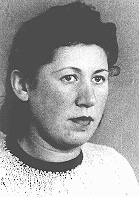
-
Henia Ring
ID CardThe youngest of two children, Henia was born to a Jewish family in the town of Krzepice. By the early 1930s, the Jewish population of Krzepice comprised more than 40 percent of the town's inhabitants. Henia's father made his living trading cattle in the area. Henia attended a public elementary school. 1933-39: On September 1, 1939, the Germans invaded Poland; a day later, they entered Henia's town. Her family tried to escape to Warsaw but the German forces quickly overtook them and ordered them back to…
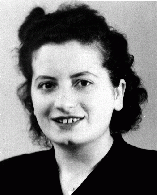
-
Ceija Stojka
ID CardCeija was the fifth of six children born to Roma ("Gypsy") parents who were Roman Catholic. The Stojka's family wagon traveled with a caravan that spent winters in the Austrian capital of Vienna and summers in the Austrian countryside. The Stojkas belonged to a tribe called the Lowara Roma, who made their living as itinerant horse traders. 1933-39: Ceija grew up used to freedom, travel and hard work. Once, her father made her a skirt out of some material from a broken sunshade. She was 5 years old and…
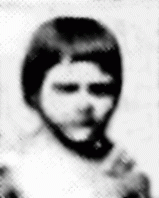
-
Dezso Rozsa
ID CardDezso was from a Jewish family in Hungary's capital, Budapest. His father had been a violinist. Dezso earned a university degree in English, and became a language teacher. He wrote a number of high school grammar textbooks. In 1914 he married Iren Hajdu, who was a mathematician. The couple had two children; a daughter, Eva, born in 1918, and a son, Pal, born seven years later. 1933-39: Dezso fears for the worst now that the antisemitic Prime Minister Teleki has taken power again. Nineteen years ago, in…
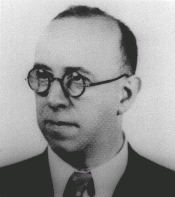
-
Kornelia Mahrer Deutsch
ID CardKornelia was known as Nelly. She was the older of two daughters raised by Jewish parents in the Hungarian capital of Budapest. Her father fought in the Hungarian army during World War I. Kornelia attended public school and later worked as a bookkeeper for a soap factory. In 1928 she married Miksa Deutsch, a businessman who sold matches. 1933-39: Kornelia's husband was religious and the Deutsches' three children attended Jewish schools. Miksa and his brother were the sole distributors in Hungary of…
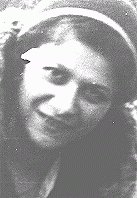
-
Klara Gottfried Reif
ID CardKlara Gottfried Reif's parents, Herschel and Ethel Gottfried, owned a flour mill and a general store in a small Polish town. Klara could speak five languages. As a young woman, she took an interest in fashion, and enjoyed travelling. On a trip to Vienna, she met Dr. Gerson Reif, a young dentist. After marrying in 1925, the couple settled in Vienna and the first of their two children was born in 1927. 1933-39: After the Germans annexed Austria in 1938, they effectively prevented Jewish dentists from…
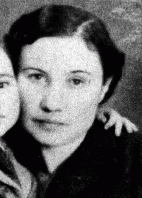
-
Liane Reif
ID CardLiane's Polish-born Jewish parents were married in Vienna, where they lived in a 14-room apartment in a middle-class neighborhood near the Danube River. Liane's father, a dentist, had his office in their home. 1933-39: After Germany annexed Austria in 1938, Liane's father was found dead, a probable suicide. In May 1939, four months before war broke out, her mother booked passage on the St. Louis, a ship bound for Cuba. But Cuban authorities turned the ship back. Along with some other refugees from the…
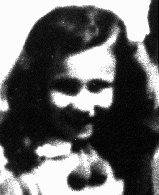
-
Leo Hanin
ID CardLeo's Jewish family lived in Vilna, which in 1913 was part of the Russian Empire. In 1916, fearing revolution, his family left for Harbin in northern China, a city with a well-organized Jewish community. There Leo joined a Zionist group and studied Jewish history, and for two years attended a Jewish primary school and learned Hebrew. He then studied at a Russian secondary school in Harbin. 1933-39: When Japan occupied Manchuria in 1931 and conditions in Harbin deteriorated, Leo's parents sent him to…
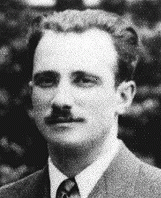
-
Irene Freund
ID CardThe younger of two children, Irene was born to Jewish parents in the industrial city of Mannheim. Her father, a wounded German army veteran of World War I, was an interior decorator. Her mother was a housewife. When the Nazis came to power in 1933, Irene's older brother, Berthold, was attending public school. Three-year-old Irene was at home with her mother. 1933-39: Celebrating Jewish holidays with all of Irene's aunts and uncles was really nice. One of her favorite places was the zoo; she especially…
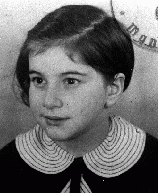
-
Yennj Baehr
ID CardYennj and her husband Heinrich were two of a few Jewish residents in Ruchheim, a small town in the Rhine River valley. Yennj helped Heinrich run their dry goods store that was on the first floor of their house. In the summer she liked working in the garden out back. Their son, Kurt, had immigrated to America after World War I. Ida, their daughter, helped them in the store until she married. 1933-39: The Nazis have come to power, and many Jews have decided to leave Germany. Yennj and Heinrich's niece,…
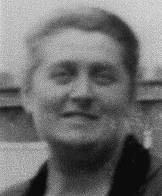
-
Ida Baehr Lang
ID CardIda was born to Jewish parents who owned a dry goods store in a small town in the Rhine River valley. As a teenager, Ida loved to bicycle with her cousin, Luise, in the scenic valley. After graduating from school, Ida helped her parents run the store. When she was in her early twenties, she married Fritz Lang, who owned a dry goods store in nearby Lambsheim, where they lived. 1933-39: Ida and Fritz have hired a housekeeper to help take care of their new baby girl, Freya, while Ida works in the store. More…
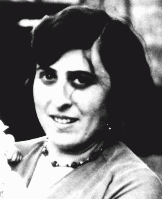
-
Kalman Goldberg
ID CardKalman was one of seven children born to religious Jewish parents in the town of Tarnow. He attended public school in the morning and religious school in the afternoon. Kalman's father owned a factory that manufactured kosher soap, sabbath candles and candles for church altars. The Goldbergs lived above their factory, which was located in a predominantly Jewish neighborhood. 1933-39: The Germans occupied Tarnow on September 8, 1939. The next day, they burned the synagogues. One synagogue, built of stone…
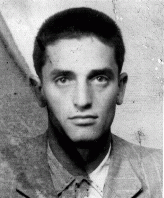
-
Ita Grynbaum
ID CardIta was the second-youngest of nine children born to religious Jewish parents in Starachowice, a town in east-central Poland. Their small one-story house served as both the family's residence and their tailor shop. The tailoring was often done in exchange for goods such as firewood or a sack of potatoes. Ita often helped her mother with chores around the house. 1933-39: Ita's father died at home on a Saturday in June 1939, shortly after returning from synagogue. He had lain down to rest, when suddenly…
